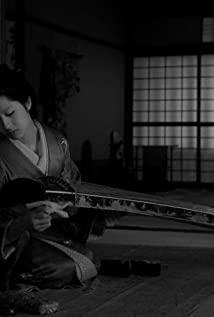People who love life don't worry about the madness of others.
——"Shall We Dance?", Zhou Fangzhengxing, 1996
Sometimes dancing, sometimes taking a nap on the subway, sometimes worrying about the balance of the bank card, it is for our lives.
It's not a staff comedy, but it opens with a staff comedy, a warm light comedy about staff learning to dance, to be precise. After all, the most touching story is the story of the little people warming each other, which is also the key to the success of this film - a kind of universal humane care. The best proof is that the script was bought by ever-critical Hollywood and remade eight years later into an American version starring Richard Gere and Jennifer Lopez.
In fact, just talking about the drama is not without faults. Many places cannot stand scrutiny, and there is a lack of necessary and sufficient foreshadowing in some beginnings and transitions. However, because of its record of being acquired by Hollywood, it has been regarded as a standard by many people for its script, and it seems to be a risk to find fault. For example, before leaving, Mai Kishikawa wrote Mr. Sugiyama a eloquent letter of invitation, thanking him for teaching her to trust her dance partner. Give him to be physically close to his partner—a sign of trust. For another example, as a movie with a group portrait of small people, the wishes of the small people should be satisfied to a certain extent, so that the audience can get emotional catharsis. However, the idiot Aoki, who was always abandoned by his dance partners, did not get his exclusive dance partner; Ms. Toyoko, who wanted to relive the feeling of dancing when she met her deceased husband for the first time, the dance with Sugiyama was a public embarrassment, not a complete one. Compensation; and Mr. Tanaka, who is not popular with the opposite sex, seems to have gained a dance partner and even love in the end, but in the early stage, there was no premise for Mr. Fujiyoshi's niece. She just appeared suddenly during the competition, and they didn't even have a line dance. Just play directly. The desires of these supporting roles are all lost to a certain extent. This kind of rushing out Dzogchen is not handled delicately enough, and it reveals the drawbacks of commercial genre films that are result-oriented and careless. This is a movie about small people being healed by dancing, but in the end, only the male and female protagonists who are above the middle class and have certain social achievements are really saved. It also revealed that the reason why the film's copyright was chosen by Hollywood was largely due to its ideological conservatism, just like its self-circumvention in dealing with the issue of Mr. Sugiyama's spiritual derailment, revealing a sense of A respectable hypocrisy that is praised. This is a typical middle-class self-pity film. If Mr. Aoki is the protagonist, it may be a different scene.
It still touches us, even if the information is too thick, because the core of this story is about the salvation of ordinary life by art. This is the common desire of everyone secretly in the silent daily life. Taking China as an example, it grows in every KTV after the night falls, and it also grows in the pulse of square dancing at the gate of every community. We look forward to the rescue of art, even if it is only temporary anesthesia and relief.
The prototype of the story of mutual help and friendship between the little people can be seen in many movies, such as Frank Capra's "Life is Like a Dream", "Seventy-two Tenants" adapted from a burlesque, and Stephen Chow's "Seventy-two Tenants", which was born out of it. effort". But it's less common to connect with dancing. The idea most similar to this film must be Ettore Scola's "The Ballroom", which records the interaction of guests in a ballroom from the 1920s to the 1980s. The times of the decade were changing. It is also dance art that records the crux of human psychology. "Dance Hall" focuses more on the changes of the times, and "Talking About Love and Dancing" points to a kind of self-soothing of ordinary people with the help of art.
The film explores what ballroom dancing means to Japanese society, another dimension of concern for the amplified issue of human loneliness in Japan, as Herzog did last year in Family Romance Ltd. No matter how it is covered up, the morbid loneliness of Sakura Country has been captured by both local and foreign artists through the cartoon boom or the tumor-like growth of the sex industry. Mr. Sugiyama, a worker ant who lives on two o'clock and one line, and his fellow students at Kishikawa Dance Training School, frame a little artistic miracle in ordinary life with his toes and arms. Another hidden meaning of Shall we dance is: Can I hug you and dance with the daily life?
After all, dance is a miracle of love and art in ordinary life, a sacrificial overstepping of the stubborn order.
The most amazing thing is Naoto Takenaka's performance. He seems to let us see the genius of physical comedy again. It is a natural talent to be exaggerated but not annoying. In the matter of happiness, it is always too roundabout to resort to the brain nerves, and there is an irreplaceable noble simplicity in the refreshment of dancing with hands and feet. Every comedian, if one can qualify as a genius, should be a competent mime performer. The free waving of the body gives us the opportunity to return to the scene of childhood, and once again have the joys and sorrows that do not need to worry or think. Some people may say that his performance is too much, but people who love life never worry about the madness of others, just like we don't ridicule the passion of tango dancing. The urge to live never fades, it just exists in a different form.
In this way, in the ordinary years of sun and moon, sometimes in a daze, sometimes dancing, just like Takenaka Naoto or Aoki Tomio.
View more about Shall We Dance? reviews










